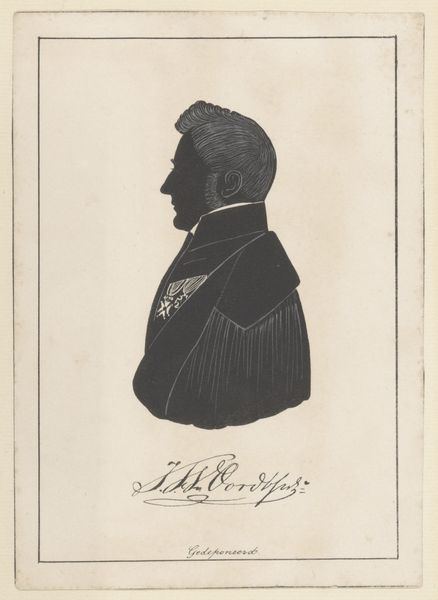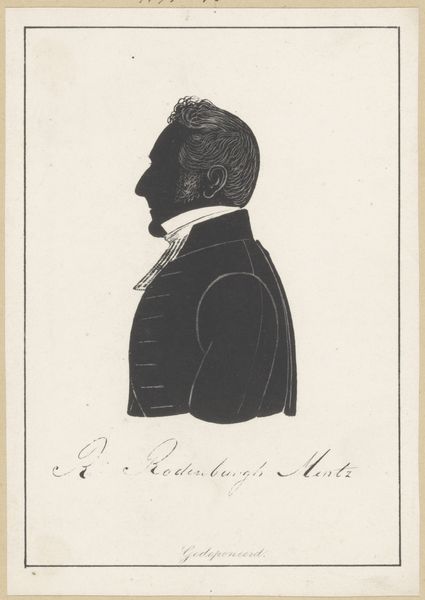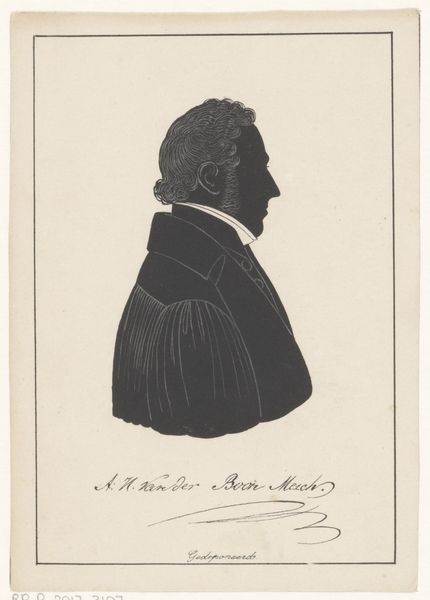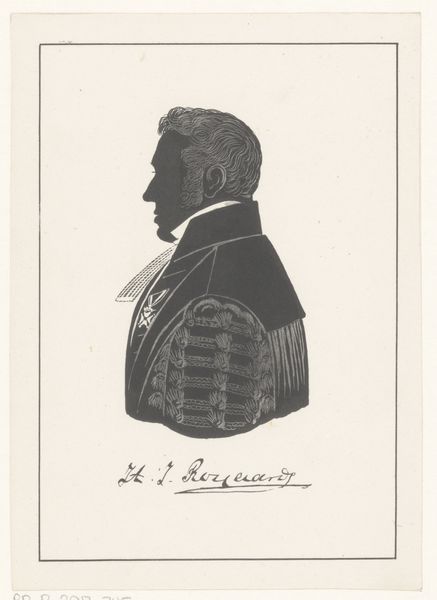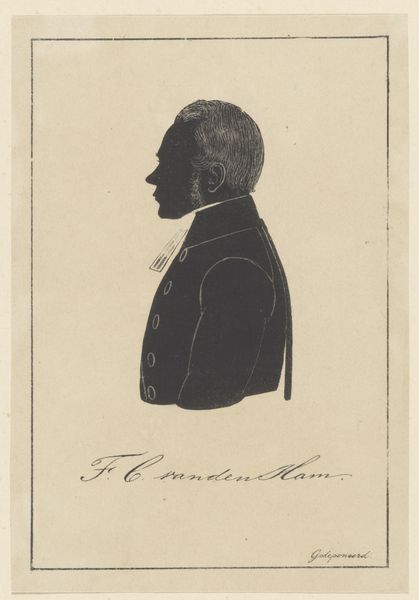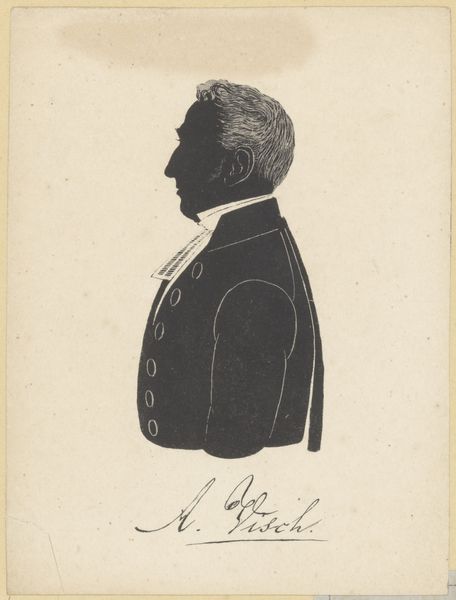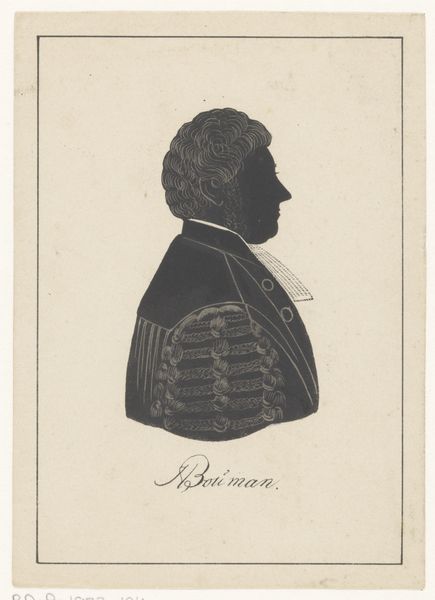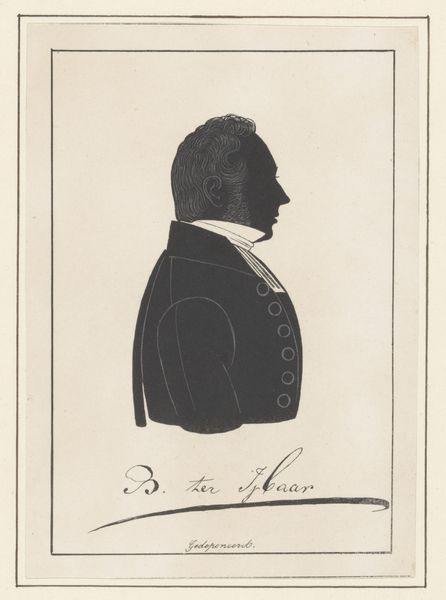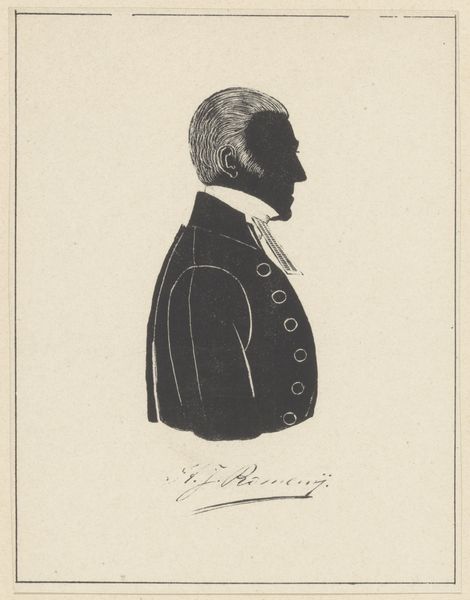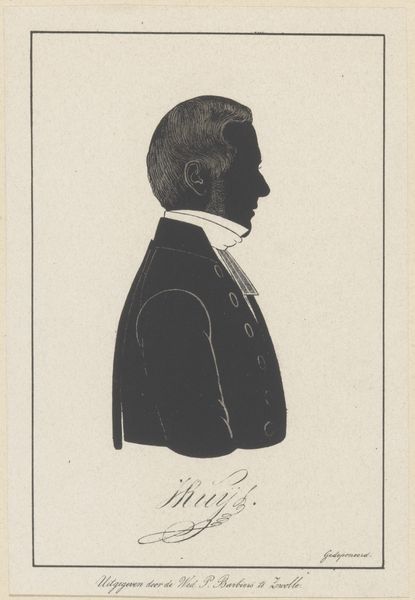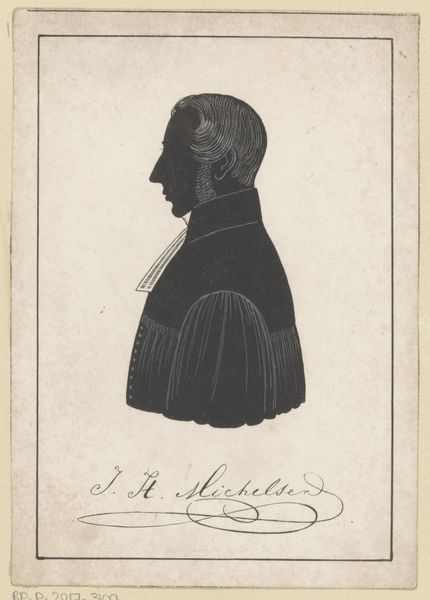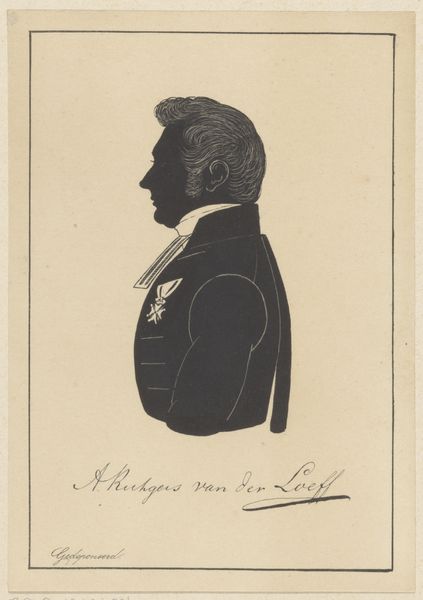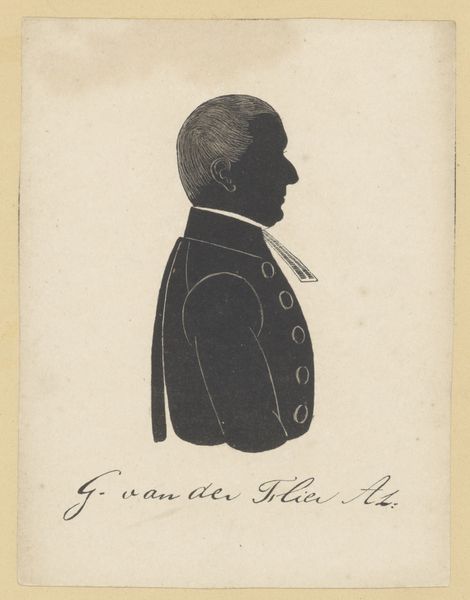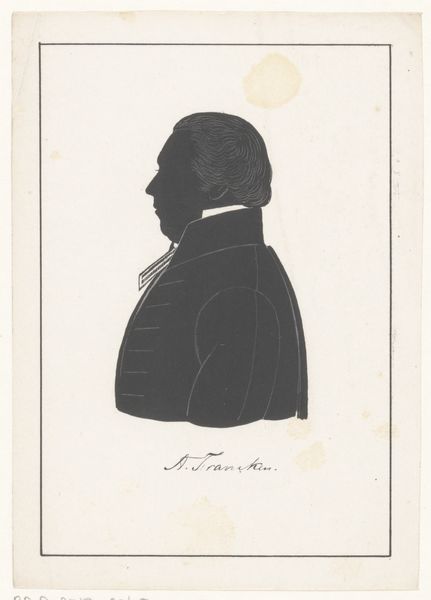
print, engraving
#
portrait
# print
#
old engraving style
#
figuration
#
personal sketchbook
#
line
#
engraving
Dimensions: height 158 mm, width 113 mm
Copyright: Rijks Museum: Open Domain
This is a silhouette portrait of Henricus Egbertus Vinke, made by Pieter Barbiers the Fourth. While undated, the piece gives us insight into the cultural and social conventions around portraiture during the artist’s lifetime. Silhouette portraits were a popular and accessible form of representation in the 18th and 19th centuries, offering a cost-effective alternative to painted portraits. In this example, the stark contrast between the black silhouette and the white background draws our eye to the contours of Vinke’s face and the details of his clothing, like the patterned fur on the cape. Consider the class and gender dynamics at play. The subject's attire signals his status, while the artist's skill in capturing likeness reflects the values of a society that prized both individuality and social decorum. What does it mean to capture someone’s identity through shadow? Perhaps it's a reflection on the parts of ourselves we show and conceal. The silhouette becomes a powerful symbol of presence and absence.
Comments
No comments
Be the first to comment and join the conversation on the ultimate creative platform.
